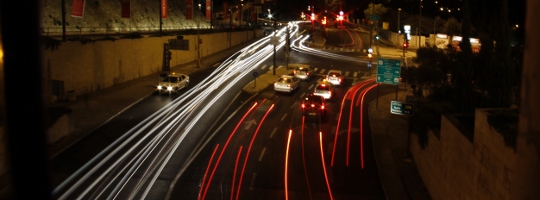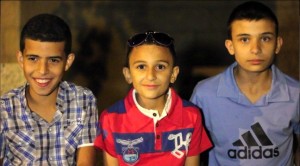
Let’s play a game. It’s simple. There is only one rule: I say a word and you must say the first word that comes to mind.
Ready? Go!
I say “Colorado” and you say … “skiing.”
I say “beach” and you say … “ocean.”
Excellent! You catch on fast. Let’s keep going …
I say “Hersheys” and you say “chocolate!” (with a smile)
I say “Catholic” and you say “priest.”
I say “Mexico” and you say “vacation” or perhaps (with another smile) “margarita.”
Good. Very good. You have not missed a beat. Now, let’s mix it up a bit.
I say “American flag” and you say “freedom.”
I say “Mexican” and with just a moment’s hesitation, you say “illegal immigrant?”
I say “China” and you say “Communism.”
I say “Islam” and you say “extremist.”
I say “Palestinian” and you say … “suicide bomber.”
Ah. Amazing how strongly these are correlated in our minds, how quickly they roll from the tongue. As humans, our brains are designed to memorize things in pairs or as parts of a story. Tricks for memorizing often include word associations. The media, advertising, and political campaigns use these word associations and sound bytes (short stories; Tweets) as some of the most powerful tools for building and maintaining a following. Unless we, as the recipients have direct experience to counter what we hear or read, they are absorbed, quickly becoming something we make our own—a part of us which we will defend and readily transmit to the next person as though we experienced it personally.
There is very little, naturally, which compels us to look beyond that which is stored in these memory banks. The nature of this recall is incredibly complex. It involves not just synaptic bridges firing, but the flush of chemical signatures which invoke a full body response. And those chemical signatures invoke additional memories of a similar emotional base which reinforce the primary recollection. We can and do rise quickly to heightened states of both pleasure or pain at the simple invocation of a word correlation such as those I opened with, above.
It is for this very reason, as a species which has propagated its history through the spoken word for some forty thousand years before the invention or writing, that TV and radio ads have so much power, some echoing for decades through the popular vernacular: “Ancient Chinese secret!” “Reach out and touch someone,” “Blue light special” (which the Bedouin of Petra use to draw attention to their stalls) have the same power as “Till death do us part,” “Remember the Alamo!” “May the force be with you” and many, many more.
If each of us questioned everything we are told, demanding full research and transparent exposure of all the facts before allowing our brains and bodies to settle into acceptance and subsequent defence, we would not only likely never get in a fight (let alone a war) but we would also find solidarity a foreign concept, incapable of moving as a group for the greater good of … anything.
Social and cognitive research has made clear our ability to unify under one philosophy, one religion, or one nation as central to our behaviour as individuals and as a species. We are inclined to take at face-value the words given to us by our political or religious leaders, those who provide our paychecks or teach us in school.
It is human to hear something and repeat is shortly thereafter with the fervour and conviction of a religious experience.
My own reprogramming
What I write next is difficult for me to admit, but it needs to be said.
When I first accepted this position in Jerusalem, even with some notion of the complexity of the situation in the Occupied Territories, in my mind I saw Palestinian kids running through the streets at night with black and white checkered bandanas pulled over their faces. I imagined angry young men overturning cars and seeking to do harm to anyone American. While I logically knew this was not the case, yes, those images remained as I rewrote my will and spoke to my parents about the potential of my not coming home (alive).
To date, not a single interaction with any Palestinian, not with those who protest, not the women who teach at the kindergarten nor the man who cuts my hair, nor Fatir who serves pizza, nor the owner of the International Bookstore have offered anything but warmth and hospitality.
Yet tonight, as I walked through narrow, poorly lit streets just after sunset in the Arab quarter of the Old City, I found myself walking faster than I do elsewhere. I forced myself to slow down, to interact, to make eye contact, to just breathe for I realized I was falling victim to my own xenophobia. Not out of logic or personal experience, but something deeper which whispered, “They can see you are different. You don’t belong here.”
Of course, the slower I walked, the more conversations I was given opportunity to engage. I stopped to purchase an ice cream bar and even helped to break up a fight. Five preteen boys playful wrestling had become a kid brawl in a corridor parallel to the Via Dolorosa. I waited for the arms and hands to drop below my eye level before I pulled one boy off and set him aside, only to watch him jump back in. A shop keeper came out and held another back. I grabbed one around the waist yelling “Khalas! Khalas!”
The boy I was holding stopped struggling and looked at my hands and then the sleeves of my polar fleece. He had this funny look of surprise when he turned his head to see I was not an Palestinian but a tourist. He pushed my arms away and turned to look at the ground again. I asked if he was ok, “Inta quayes?” “Quayes. Quayes,” he nodded in return, brushing off his pants and shirt while holding back tears. His face was red. I placed my hand on his shoulder. The shop keeper said, “Kids. What are they fighting for?” We both smiled as I turned and walked on.
I have in the past two months slowly broken down my own stereotypes and assumptions, replacing those ridiculous preconceived notions which have no foundation in anything more than sound bytes on TV (which I don’t even own). It is pushing midnight and I will again, tonight, walk through the Old City and up to the Mount of Olives (a little over a kilometer) without concern for my personal safety.
One! Two! Three!
One night, a few weeks ago, three kids walked along side me as they tested their English and helped me learn Arabic. They counted together from one to ten. “… temenya! tesah! ashra!” We stopped, toward the top, and sat on a crumbling brick wall. They told me their names (Mohammad, Mahmud, and the other I forget) as I shook their hands and introduced myself “Ismi Kai.” I happen to have most of my camera gear with me that night, so I pulled out a hand-light, camera, and microphone.
I gave the light to Mahmud while the others sat on the wall and I filmed. Mahmud yelled to his two friends, instantly a Hollywood director, “Ok! One! Two! Thre–” I interrupted him, “La, la. (No, no.) Musha photo (Not photo). Video!” He looked at me, at my camera (which does not look like a video camera) and back to his friends. “Ok! One! Two! Three!” and I pressed record. The three boys sat there motionless for about ten seconds, then I started laughing and they broke into laughter too, “Oh! Video! Video!” and jumped off the wall to see what I had filmed. We all took turns using the camera, hand light, and sitting on the wall.
As I have broken down my own assumptions and allowed myself to redefine my safety zones, I have found a level of warmth and comfort in my time with the Arab people which I have never encountered anywhere else but perhaps in Thailand. I am not saying they are not capable of violence, we all are when pushed to the limit with no way out. It is not my place to explain the dynamics of the second Intifada or the actions of Hamas and Israel. But I do know my personal interactions with these people have been genuine. When I allow that level of humanity to unfold, I see “Them” as “Us” and those word associations are reprogrammed.
My experience shared with you.
Not just in this one subject of Palestine and the Palestinians, but in all that you do, whenever you find yourself visited by strong images or word associations not directly related to your own life experiences, take a moment to ask yourself where they came from. Whose words are echoing in the folds of your grey matter? What messages accompany them? Even if it feels real for you, ask yourself why you react the way you do.
Have the courage to say, “I have no experience with this,” or “I do not believe I have enough information to lend my words to the situation” rather than repeating what you have heard on TV or from a friend or colleague, an opinion stated with the confidence of fact.
Your words are powerful. Use them wisely. Are you sharing because you want to impress your friends? or to feel a part of the group? or to simply make your voice heard in an already noisy conversation?
This technique of checking-in, of stopping just long enough to engage a bit of reason before flushing your body with emotion is at the core of meditation and inner peace. I will spend the rest of my life learning this seemingly simple technique, and I will come up short over and over and over again. But for those times that I do succeed, I walk a little slower, I breathe a little deeper. I ask myself, “What, exactly, am I afraid of?” I make eye contact. I smile bigger for no reason. I reach out and engage.
Sit down with a stranger, a Mexican immigrant, an Israeli soldier, an Arab Muslim, or an Orthodox Jew and ask to hear his or her story. Find someone you never thought you would attempt to talk to and see what transpires when you do. Ask questions and do not share anything about you unless provoked. My experience is that this, more than anything we can do, gives foundation for true peace, inside of you and in the world around you.
For tonight, I say “Palestine.”
You say, “Sounds like a place I would like to visit, some day soon.”

